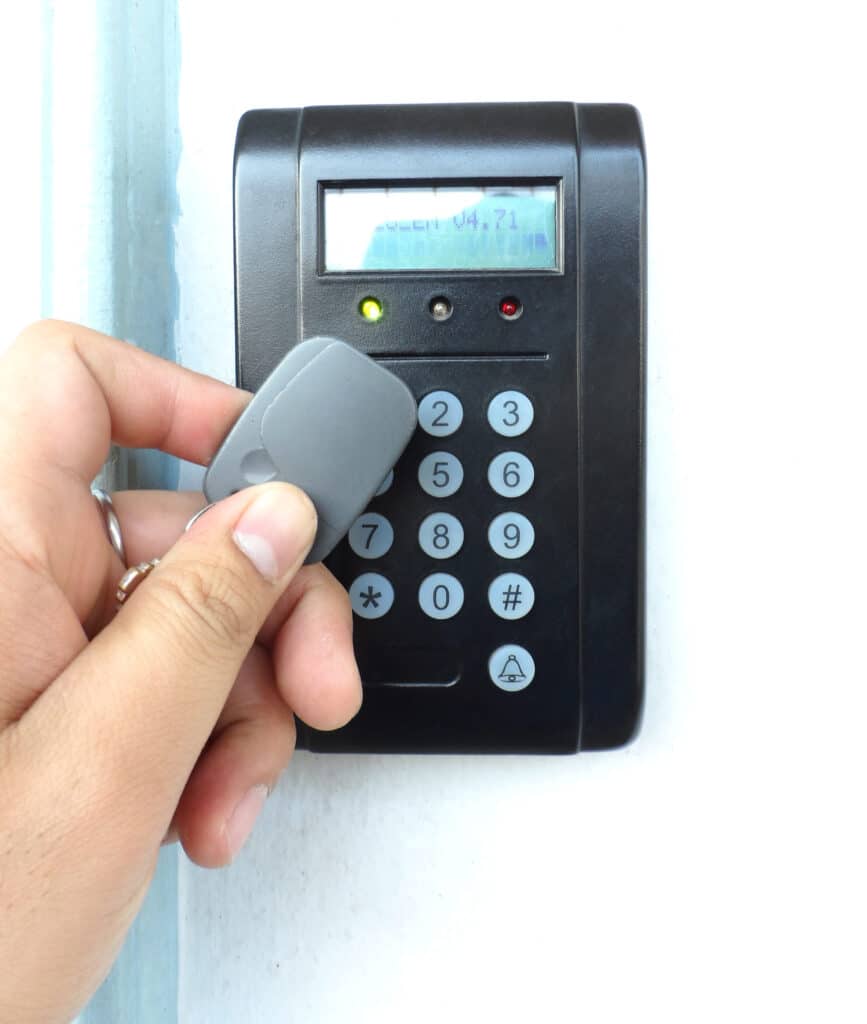In the ever-evolving landscape of urban security, understanding access control systems in Boston is crucial for businesses and residents alike. This detailed guide will explore the intricacies of access control systems, a pivotal component of modern security strategies. From their basic definition to the nuances of different types, we’ll delve into what makes these systems essential in the context of Boston’s unique security needs.

An access control system is a security solution that regulates who can or cannot enter a particular area. It’s a technology that replaces traditional keys and locks with electronic devices, providing a higher level of security and flexibility. In Boston, these systems are increasingly popular in commercial buildings, residential complexes, and public institutions. They range from simple electronic keypads that require a code to sophisticated systems that use biometrics. The core function of access control systems in Boston is to protect physical assets, provide a safe environment for occupants, and control traffic to sensitive areas.
In access control systems, the hardware can be either proprietary or open. Proprietary hardware is designed to work only with specific software and components from the same manufacturer. In contrast, open hardware works with a variety of software and components from different makers. For businesses in Boston, this distinction is crucial when selecting access control systems. Open systems offer more flexibility and integration options, making them a popular choice for modern, interconnected security setups. However, proprietary systems are often considered more secure and reliable, as they are less susceptible to compatibility issues.
A comprehensive security system, including access control systems in Boston, consists of several components. The primary parts include the control panel, which acts as the system’s brain; sensors and detectors that trigger alarms; the access devices themselves, such as card readers or biometric scanners; and the alerting system, which notifies of security breaches. In advanced systems, there are also surveillance cameras and integration with fire and safety alarms. Each component plays a critical role in ensuring the overall effectiveness of the security system, making it imperative to understand and maintain them properly.
When implementing access control systems in Boston, one of the key decisions is choosing between cloud-based and on-premises security. Cloud security systems store data on remote servers and are managed over the internet, offering scalability, remote access, and lower upfront costs. On-premises systems, on the other hand, store data locally and offer greater control over the security infrastructure. Each has its benefits, with cloud systems offering more flexibility and ease of use, while on-premises systems provide a higher degree of control and customization. The choice largely depends on the specific needs, size, and budget of the organization in Boston.
Single pane of glass security refers to a unified control and monitoring interface for various security systems, including access control systems in Boston. This approach consolidates control of multiple security functions into one dashboard, simplifying management and improving response times. For businesses in Boston, this means being able to monitor and control access points, surveillance cameras, and alarm systems from a single screen. The advantage is a more streamlined, efficient security operation, allowing for quicker decision-making and better overall security management.
API (Application Programming Interface) integrations are becoming increasingly important for physical access control systems in Boston. These integrations allow different security systems and software to communicate and work together seamlessly. For businesses, this means enhanced functionality and improved security measures. API integrations can enable access control systems to interact with HR databases for automatic updates, connect with heating and lighting systems for energy efficiency, and integrate with surveillance systems for heightened security. The result is a more cohesive, intelligent security system that can adapt to various scenarios and provide more comprehensive protection.
Access control credentials are the keys to modern security systems, especially in access control systems in Boston. These credentials can take various forms, from traditional keycards and fobs to mobile credentials and biometrics like fingerprint or facial recognition. Each type offers different levels of security and convenience. Mobile credentials, for instance, are becoming popular due to their convenience and the fact that they are less likely to be forgotten or lost compared to traditional keycards. The choice of credentials depends on the level of security required, the user’s convenience, and the nature of the environment being secured.
When implementing access control systems in Boston, several important security features should be considered. These include multi-factor authentication, which requires users to provide two or more verification factors; audit trails, which keep records of who accessed what area and when; and anti-passback features, which prevent one credential from being
This guide delves into access control systems in Boston, presented by Top Locksmith Inc. It covers system types, key components, and essential features, including cloud versus on-premises options, API integrations, and various access credentials, offering a complete overview for effective security solutions in urban settings.